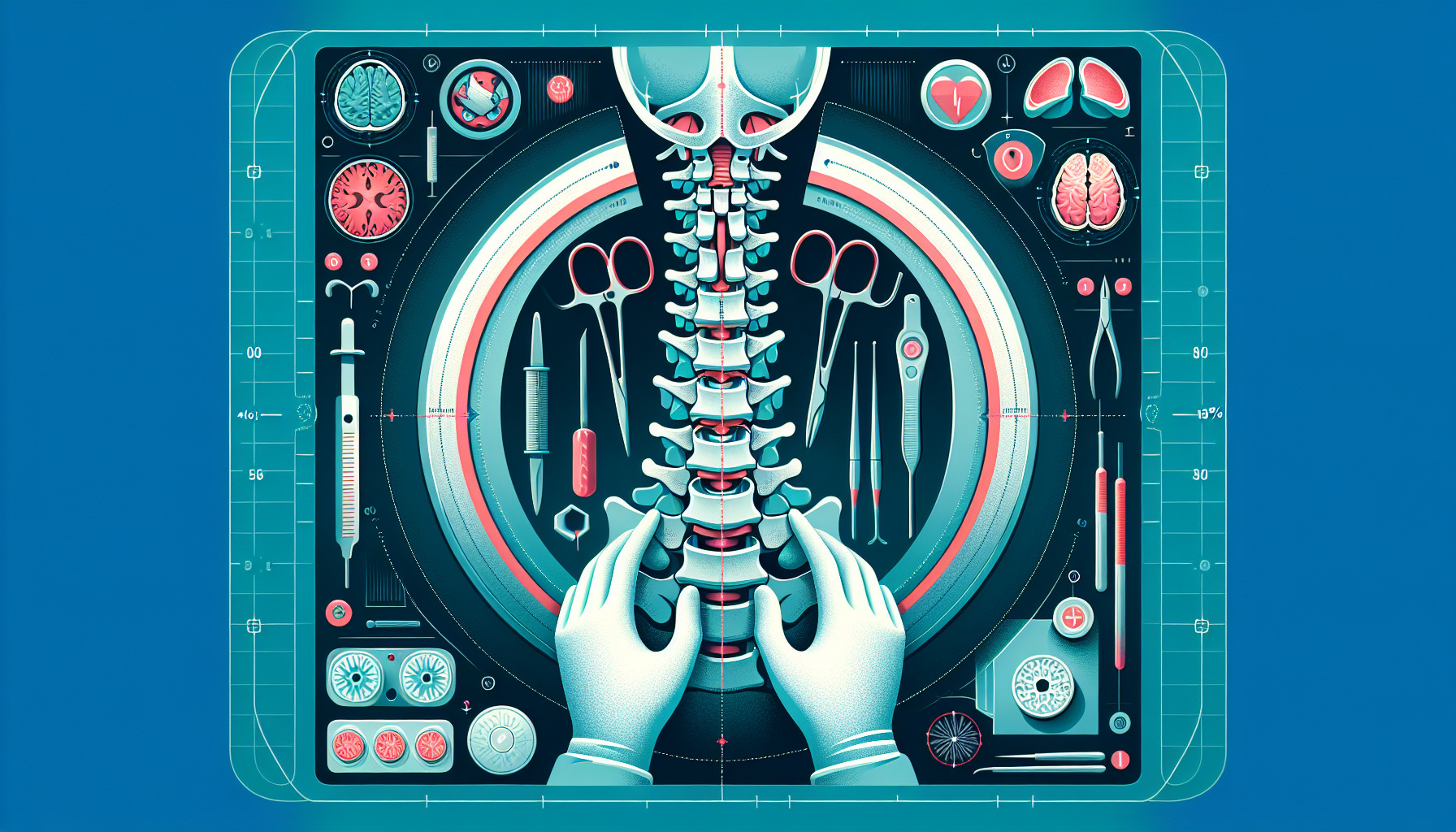Our Summary
This research paper discusses the future of minimally invasive spine surgery (MISS), a type of surgery that allows for quicker recovery and less damage to the body than traditional methods. This type of surgery is particularly important for older patients and is expected to become more popular as the population ages. The paper highlights current trends in the development of MISS, which include improving surgical techniques and creating new systems to support these techniques. The focus is on endoscopic spine surgery, a type of MISS that uses small cameras to view the surgical area. It is suggested that this type of surgery will become more widely used in the future. The paper also mentions the potential for robotics and augmented reality to play a significant role in spine surgeries going forward.
FAQs
- What is minimally invasive spine surgery (MISS) and how is it beneficial for older patients?
- What is endoscopic spine surgery and how is it expected to evolve in the future?
- How might robotics and augmented reality be utilized in future spine surgeries?
Doctor’s Tip
A doctor might tell a patient about spinal fusion surgery that it is important to follow post-operative instructions carefully, including avoiding heavy lifting and bending at the waist to allow for proper healing of the fusion. Additionally, maintaining a healthy weight and participating in physical therapy as recommended can help ensure a successful outcome. It is also important for patients to communicate any concerns or new symptoms to their doctor promptly to address any potential complications.
Suitable For
Patients who are typically recommended for spinal fusion surgery include those with:
Degenerative disc disease: Spinal fusion may be recommended for patients with degenerative disc disease, a condition where the discs between the vertebrae break down, causing pain and instability.
Spondylolisthesis: This condition occurs when a vertebra slips out of place, causing pain and instability in the spine. Spinal fusion surgery may be recommended to stabilize the spine and relieve symptoms.
Spinal stenosis: Spinal fusion surgery may be recommended for patients with spinal stenosis, a condition where the spinal canal narrows and puts pressure on the spinal cord and nerves.
Scoliosis: Spinal fusion surgery may be recommended for patients with severe scoliosis, a condition where the spine curves abnormally to the side.
Spinal fractures: Spinal fusion surgery may be recommended for patients with spinal fractures, especially those that are unstable or causing neurological symptoms.
Failed back surgery syndrome: Patients who have undergone previous spine surgeries that have not been successful may be recommended for spinal fusion surgery to correct the problem.
Tumors: Spinal fusion surgery may be recommended for patients with tumors in the spine that are causing pain or instability.
It is important for patients to consult with a spine surgeon to determine if they are a candidate for spinal fusion surgery and to discuss the risks and benefits of the procedure.
Timeline
Consultation with a spine specialist: Before undergoing spinal fusion surgery, a patient will typically meet with a spine specialist to discuss their symptoms, medical history, and treatment options. The specialist will perform a physical examination and may order imaging tests such as X-rays, MRI, or CT scans to determine the extent of the spinal damage.
Pre-operative preparation: Once the decision is made to proceed with spinal fusion surgery, the patient will undergo pre-operative testing to ensure they are healthy enough for the procedure. This may include blood tests, ECG, and other tests as needed. The patient will also receive instructions on how to prepare for surgery, which may include stopping certain medications and fasting before the procedure.
Spinal fusion surgery: During the surgery, the spine specialist will access the affected area of the spine through an incision in the back. The surgeon will remove damaged disc material, stabilize the spine with hardware such as rods and screws, and place bone graft material to encourage fusion of the vertebrae. The surgery typically takes several hours to complete.
Post-operative recovery: After spinal fusion surgery, the patient will be monitored in the hospital for a few days to ensure they are recovering well. Pain management, physical therapy, and instructions on how to care for the surgical incision will be provided. The patient will gradually increase their activity level over the following weeks and months, with full recovery taking several months to a year.
Follow-up appointments: The patient will have follow-up appointments with the spine specialist to monitor their recovery progress, address any concerns or complications, and discuss ongoing rehabilitation and physical therapy. The specialist will assess the fusion process through imaging studies to ensure the bones are fusing properly.
Long-term outcomes: Over time, the patient should experience reduced pain and improved function as the spine heals and the vertebrae fuse together. It is important for the patient to maintain a healthy lifestyle, including regular exercise, proper nutrition, and avoiding activities that could put strain on the spine to ensure long-term success of the spinal fusion surgery.
What to Ask Your Doctor
- What are the potential risks and complications associated with spinal fusion surgery?
- How long is the recovery period after spinal fusion surgery?
- What type of physical therapy or rehabilitation will be needed after the surgery?
- Will I need to restrict my activities or make any lifestyle changes after spinal fusion surgery?
- What is the success rate of spinal fusion surgery for my specific condition?
- Are there any alternative treatments or procedures that could be considered instead of spinal fusion?
- What is the expected outcome or prognosis after spinal fusion surgery?
- How many spinal fusion surgeries have you performed, and what is your success rate?
- Will I need to take any medications or supplements before or after the surgery?
- How long will I need to stay in the hospital after spinal fusion surgery?
Reference
Authors: Heo DH, Ha Y, Yi S, Chung H. Journal: Neurol India. 2022 Sep-Oct;70(Supplement):S104-S107. doi: 10.4103/0028-3886.360930. PMID: 36412354
